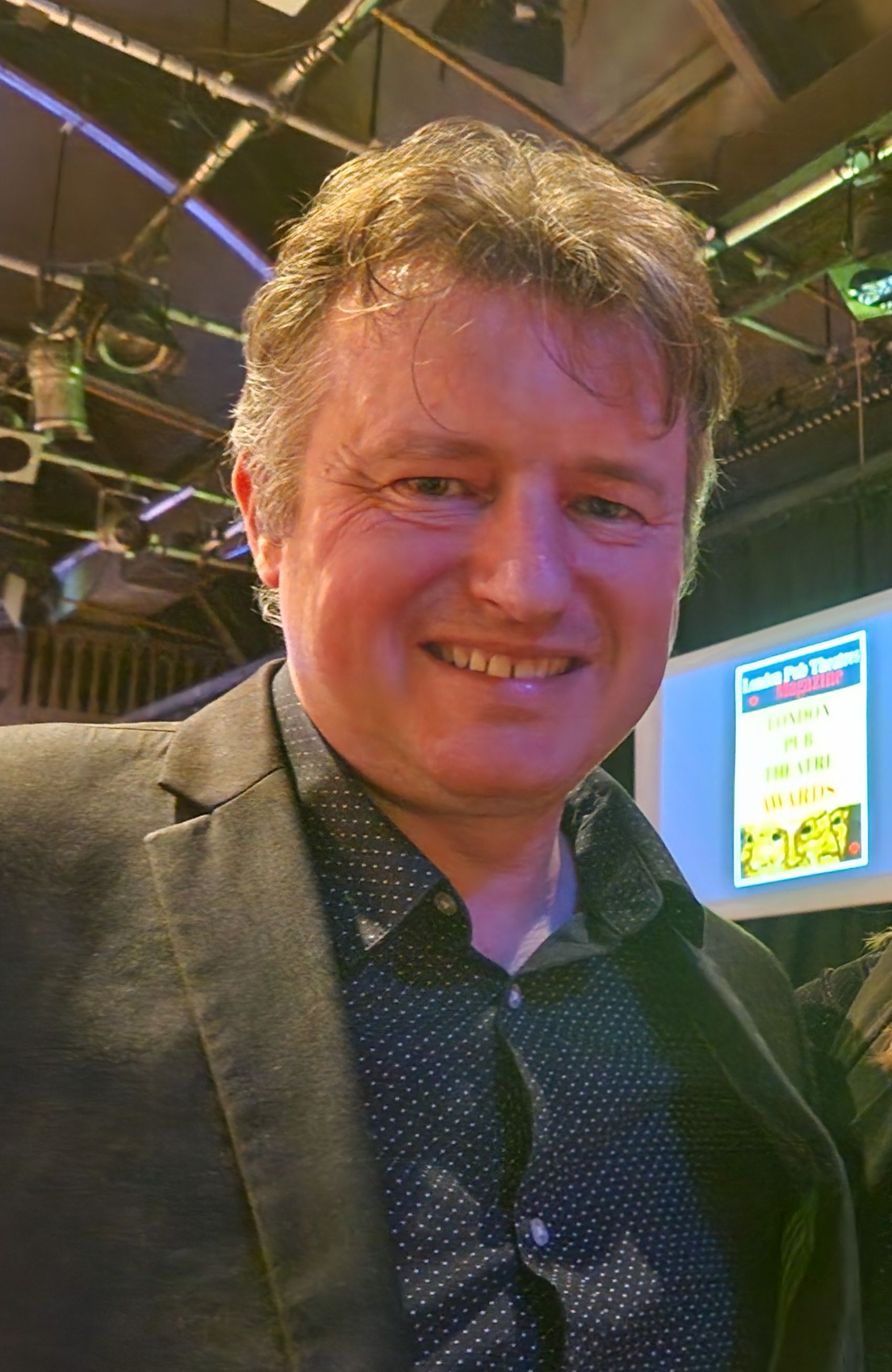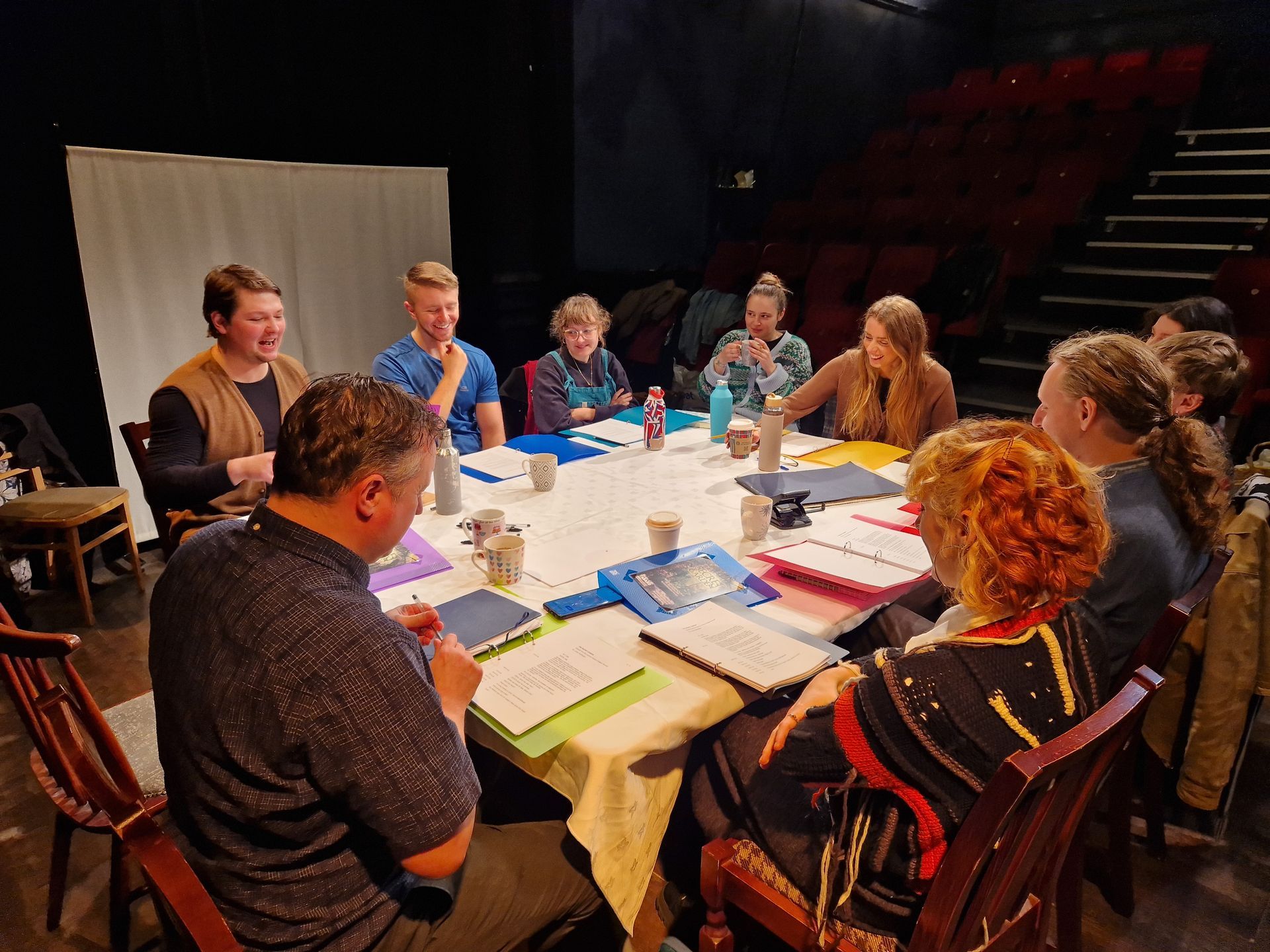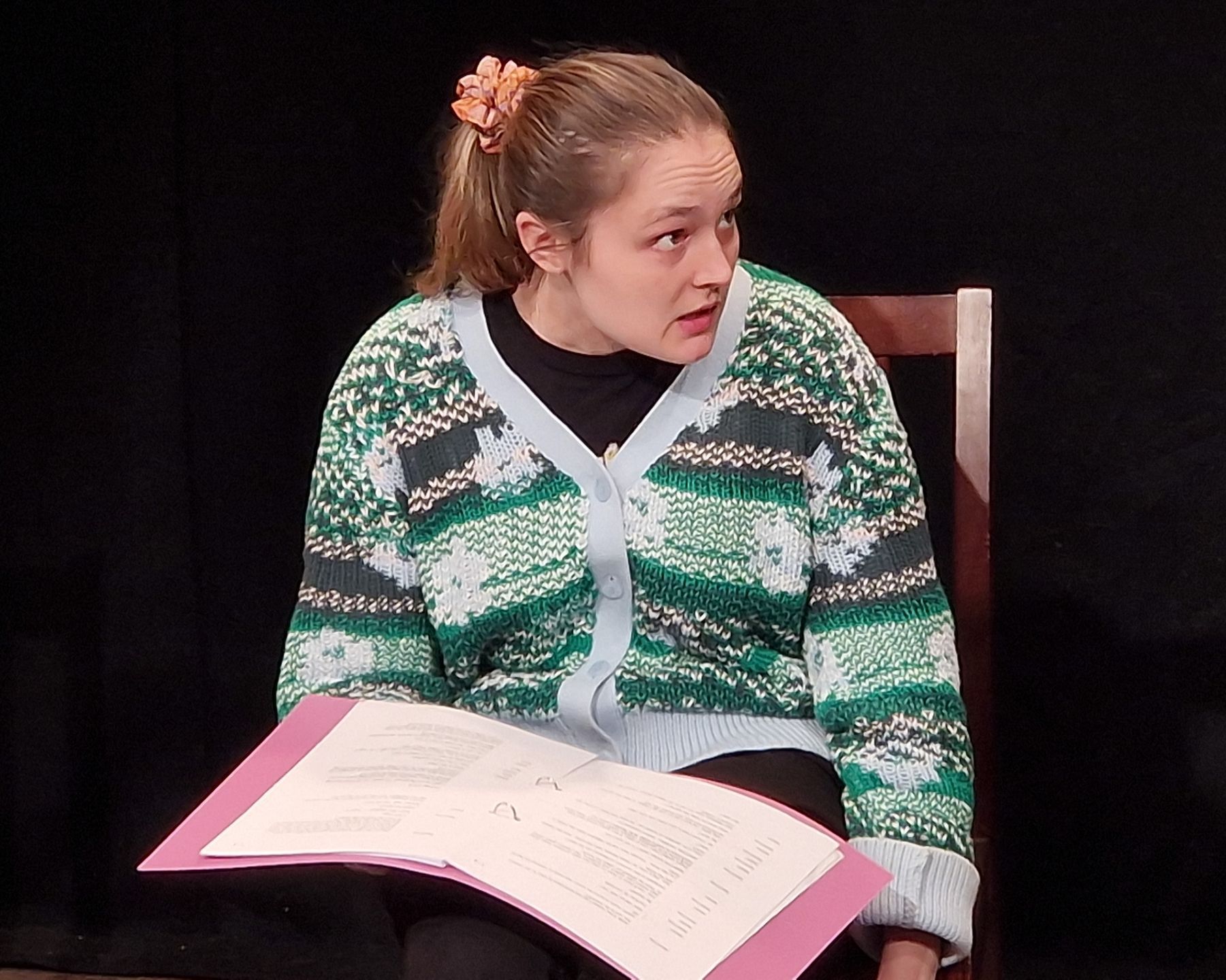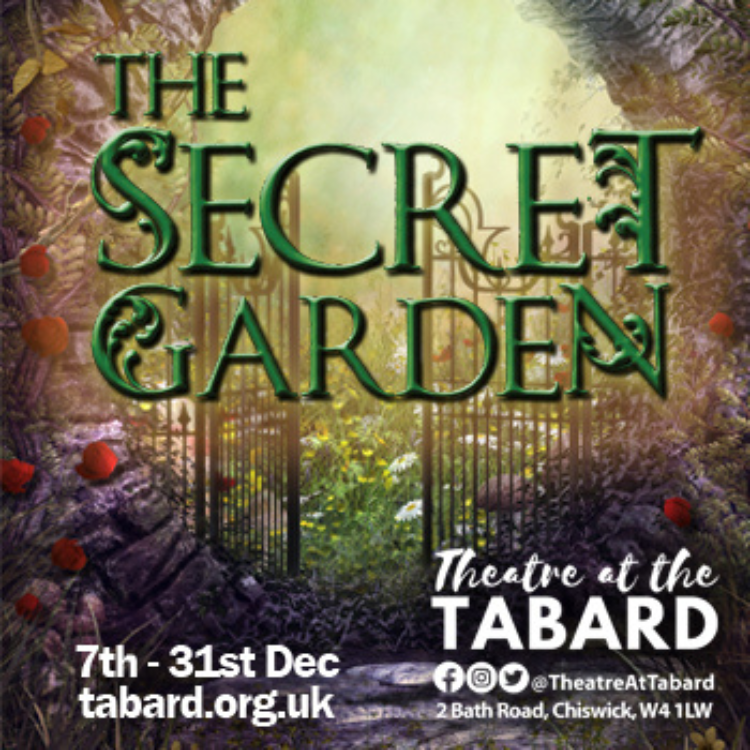Interview with Simon Reilly and Louise Haddington on THE SECRET GARDEN coming to Theatre at the Tabard 7 – 31 December
By Heather Jeffery
Which child has not been delighted by Frances Hodgson Burnett’s story set in Yorkshire, of a secret garden with almost magical healing powers. The original novel has been seen as a BBC adaptation and now, writer Louise Haddington has adapted the novel for the Tabard Theatre in Chiswick, to be directed by Simon Reilly.
HJ: I loved this novel as a child and also the BBC adaptation. It strikes me that the real difficulty of transferring it to the stage is the vast outdoors. The novel starts in India and moves to a manor house in Yorkshire (both inside and of course outside in that hidden garden). How have you approached this?
LOUISE: I loved this too, and so it’s a personal project for me. But thinking practically, the key with adapting any novel to the stage, and particularly for an intimate setting like the Tabard, is to prioritise the elements that tell the story you want to tell, and to trust the audience to come on the journey with you.
SIMON: The biggest physical challenge for us is the scene changes between indoors and outdoors, and making the garden come to life. You have to be particularly inventive when you don’t have the space to fly pieces of set in and out. That’s why we’ve brought together a fantastic design team – Hazen Owen on Set Design, Nat Green on Lighting Design and Nick Gilbert on Sound Design, to help us bring the story to life.
HJ: Is it a story for children?
LOUISE: We don’t like to think of this as a ‘kids show’, it’s something we envisage parents and grandparents loving, as well as people who don’t have children. But of course we think that children will love it. The Secret Garden is a timeless classic – although the novel was written over 100 years ago, there is still so much in it that we as modern audiences can appreciate and understand. Its fundamental themes about loss, discovery, and redemption speak to all of us in different ways.
SIMON: What was wonderful about our production of Five Children and It last year is how the children in the audience engaged with the story, despite its Edwardian setting, and many came out asking to read the book or play with some of the traditional toys they’d seen on stage. It caught their imaginations in a different way than the games and shows children are used to now, and there was something magical about reclaiming some of the innocence of a simpler childhood. We really hope that The Secret Garden will have a similar effect, and we have some children advising us to keep us on track.
HJ: Louise, please tell me a little bit about your starting point for the adaptation, was it story, character or place perhaps?
My starting point was definitely character; getting to know the children in the story - Mary, Dickon and Colin - and understanding how they come to be the children they are. Mary isn’t an inherently horrible child, she’s been through trauma in her young life and her initial behaviour is the result of what has happened to her. But she is capable of learning and changing, which is why her journey, under the careful guidance of young Dickon, is so important to get right. And whilst Mary is clearly the protagonist of the story, it became clear early on just how important Dickon’s role is in nurturing Mary and Colin, and quietly restoring happiness back into gloomy Misselthwaite Manor. That’s why Dickon is the one to open the show in our adaptation – really, he is the key.
HJ: Simon, what pre-expectations did you have of the adaptation, and have they been confounded?
SIMON: My initial thought was that the story might be just too old fashioned. I’d seen previous adaptations on film and TV that didn’t do much to dispel that. I really wanted to find the fun and humour in this adaptation, as well as the heart and emotion, and I think the script and creative ideas we have for this production will really deliver on that. One of the things that really struck me is how ahead of its time the novel seemed to be. There was an understanding there about children’s outlook and behaviours being the result of their circumstances and how they’ve been treated, and of how holistic activities like play and gardening can have a positive impact on health and wellbeing.
Image: Director Simon Reilly

HJ: Please could you tell us what you both consider to be the heart of the show?
LOUISE: For me, this is a story of love, kindness and compassion.
SIMON: Yes, it’s a story about finding good in the world and bringing out the best in other people. Mary is a lonely child, and when she is shown kindness, she pays it forward tenfold. As Christmas messages go, it’s a pretty strong one.
HJ: Do you both have a favourite character in novel? Could you expand on what attracts you to them and how this aspect will transfer to the stage.
LOUISE: I just love Dickon. There’s something really important for me about this boy whose family is very poor, who has so much to give to those around him, regardless of their status. He is kind and caring, sensitive and compassionate, and, as Mary says, “he is beautiful”. I can’t wait to see how Simon and the team bring in the animals to surround Dickon, which are such an important part of understanding his character.
SIMON: I’m enjoying exploring Mary’s character. It’s easy to portray her as a just a spoilt, sullen child, but there’s a lot going on under the surface. And Daisy Rae, who plays Mary in the show, a recent ArtsEd graduate, shone through in the audition process, so I’m very much looking forward to working with her as we get started with rehearsals.
Images below: First day of rehearsals / (Daisy Rae as Mary Lennox in rehearsal

HJ: Please could you also tell me what you were looking for in the auditions for the actors and the roles they will be playing.
SIMON: Energy and a thirst for the work. Working in small scale theatre can be a challenge, however, when everyone mucks in the process is even more enjoyable. For our 6-strong cast, they not only have their main roles to play, but they will also be puppeteering to bring the animals to life. It’s a bit of a cliché, but we really didn’t go into auditions with a pre-conceived notion of how we wanted each character to be played. We enjoyed the process of seeing what each performer brough to the part, and the wonderful actors that we’re working with shone through from a very high-quality group of auditionees. We’re particularly happy, though, that a number of our cast are making their professional stage debuts in this production, and we look forward to seeing what they do next.

HJ: What are you both most looking forward to achieving with the production?
LOUISE: We’re both parents, and if our children give their stamp of approval that, to me, will be the highest achievement.
SIMON: Many people only go to the theatre once a year, and often that’s at Christmas. For some children it will be their first experience of theatre. And so what we hope is that this production will set their imaginations ablaze, particularly in being able to create a magical theatre experience in a studio setting where the audience are very up close to the action. We really hope to send off families having enjoyed the theatre experience together and eager to return, whether to us, or to the many other fantastic pub theatres on offer across London.
HJ: Simon, this is the third year that you have mounted a family show for the festive season. How important is the family show in theatre?
SIMON: Its incredibly important and a huge responsibility. We are hoping to encourage the next generation of theatre goers. I believe my daughter doesn’t want to be patronised or preached to in the theatre; she wants to be entertained, perhaps discover something new, and share the experience with others – her friends, parents, grandparents (and obviously she’s also there for the ice cream). For me, there’s something particularly special about the intergenerational experience, and it can be really hard to find things that I can bring both my daughter and my own parents along to. But it’s so special when we find something, or in this case, create something, that people of any age can enjoy. It’s a vital part of introducing this wonderfully imaginative world of theatre to young people, and nurturing future audiences.
HJ Louise, as you are no doubt aware, the 78 seat Theatre at the Tabard believes in bringing West End quality with off west end prices. Is this something that you had to consider when writing the adaptation?
LOUISE: Absolutely. I’ve had the pleasure of seeing lots of fantastic shows since Take Note Theatre took over running the Tabard last year, and was delighted that our collaboration on Five Children and It was such a success. I love that the production values for the Tabard’s in-house productions are always so high, and I wanted to create a world on the page that I could visualise on the Tabard’s stage. When writing for the Tabard, I’m very mindful of what might be possible in the space, but also conscious that my role is not to design or direct the show – there are others much more skilled in those areas who will bring it to life from what I’ve written. But it helps if I’m keeping an eye on what’s physically possible and on what I think will work well for the theatre’s West London audience.
HJ: How far have you each had to consider the show’s impact on an audience?
LOUISE: With the source material being of its time, I felt there were elements and attitudes in the original novel that would not have sat well in a 2023 stage production, even though we are still setting it in Edwardian times. So I have chosen the language in the script carefully, whilst sticking as closely as possible to the novel’s words, sentiments and fundamental plot lines.
SIMON: The story is very emotional, it deals with trauma and grief, as well as love, hope and restoration. With the production underpinned by a musical score, we imagine that audiences might shed a tear but come out smiling.
HJ: Could both of you give me a little flavour of one of your favourite scenes.
SIMON: I love the scenes with Mary and the Robin; they're touching, playful and emotional, and give a real sense of Mary's discovery of nature.
LOUISE: I love the moment where Mary is presented with her first skipping rope. She doesn’t know what it’s for, and housemaid Martha has a great time showing her what to do. It’s a lovely moment of starting to see Mary as the child she is, helping her to discover a love of play that had been long forgotten, and a feeling of gratitude she hasn’t previously been able to express.
HJ: Finally, what are the three main things that each of you have taken from the story that you trust will transfer to the stage.
SIMON: It’s a heartwarming story, full of magic and mystery, with playfulness at its heart. I hope that audiences will see that in our production.
LOUISE: That sometimes long-buried secrets need to be unlocked to bring about a healing process; that children ought to have the opportunity to be children without the weight of the world on their shoulders; and that everyone should have a go at tweeting and hopping with the birds – it’s very silly and laughter is great medicine.
The Secret Garden
Theatre at the Tabard, Chiswick
7th - 31st December 2023
Based on the novel by Frances Hodgson Burnett and adapted for the stage by Louise Haddington







